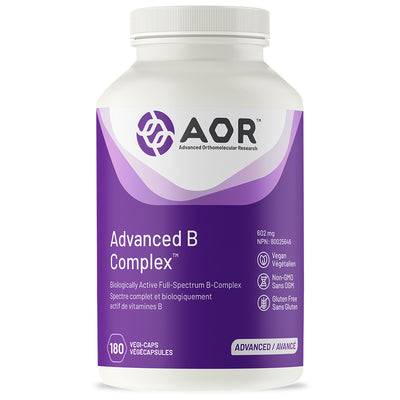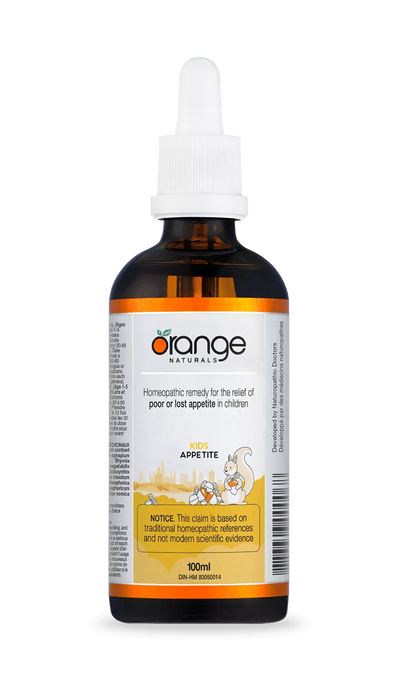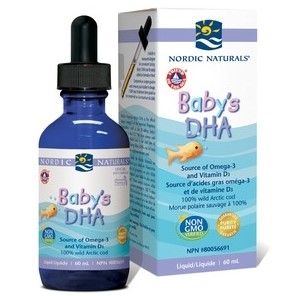A Guide to Choosing the Right Probiotic
Reviewed by Aleksandra Morgan, CNPThe popularity of probiotics has increased in recent years, with many people looking to promote digestive health, boost immunity, and even improve mental well-being by improving their gut health. With a variety of probiotic products available on the market, selecting the right one can be overwhelming. However, finding the best probiotic match for your health doesn't have to be complicated. Let’s explore the factors to consider when choosing the right probiotic for you.
Understanding Probiotics
Probiotics are live bacteria and yeasts that are good for your health, especially your digestive system. They help maintain the natural balance of microorganisms (microbiota) in your intestines, which is vital for overall health. Probiotics can be found in certain fermented foods, such as yogurt, kefir, sauerkraut, and kombucha, as well as in supplement form.
Factors to Consider When Choosing a Probiotic
- Strain Specificity: Different strains of probiotics have unique benefits. For example, Lactobacillus and Bifidobacterium are commonly found in probiotic supplements and have been extensively studied for their health-promoting effects. When selecting a probiotic, look for specific strains that target your health concerns, whether it's improving digestion, boosting immunity, or alleviating symptoms of certain conditions like irritable bowel syndrome (IBS).
Let's delve deeper into some well-researched probiotic strains and their specific health benefits:
-
Lactobacillus acidophilus: This strain is commonly found in yogurt and other fermented foods. It's known for its ability to produce lactase, an enzyme that helps break down lactose, making it beneficial for individuals with lactose intolerance. Additionally, it may help alleviate symptoms of diarrhea, irritable bowel syndrome (IBS), and vaginal infections.
-
Bifidobacterium bifidum: helps regulate bowel movements, reduces inflammation in the gut, and strengthens the intestinal barrier. B. bifidum supplementation also improves symptoms of diarrhea, constipation, and inflammatory bowel diseases (IBD) such as ulcerative colitis and Crohn's disease.
- Lactobacillus rhamnosus GG (LGG): LGG is one of the most extensively studied probiotic strains with a wide range of health benefits. It has been shown to enhance immune function, particularly in reducing the incidence and duration of respiratory tract infections, such as the common cold and flu. LGG also supports digestive health by modulating the gut microbiota, alleviating symptoms of diarrhea, and preventing antibiotic-associated gastrointestinal disturbances.
-
Saccharomyces boulardii: Unlike most probiotics, S. boulardii is a yeast species rather than a bacterium. It's known for its ability to prevent and treat various gastrointestinal disorders, including infectious diarrhea, antibiotic-associated diarrhea, and traveler's diarrhea. S. boulardii works by inhibiting the growth of harmful bacteria and enhancing the intestinal barrier function.
-
Lactobacillus plantarum: produces lactic acid, which creates an acidic environment in the gut that is unfavorable for pathogenic bacteria. It also helps strengthen the intestinal barrier, reduce intestinal permeability, and modulate the immune response. Research suggests that L. plantarum may be beneficial for conditions such as irritable bowel syndrome (IBS), inflammatory bowel diseases (IBD), and allergies.
-
Bifidobacterium longum: B. longum is a probiotic strain that helps maintain the balance of gut microbiota, supports digestion, and enhances immune function. B. longum has been studied for its potential to alleviate symptoms of gastrointestinal disorders, including diarrhea, constipation, and inflammatory bowel diseases (IBD). It also has protective effects against respiratory infections and allergic conditions.
- CFU Count: CFU, or colony-forming units, indicate the number of viable bacteria in a probiotic supplement. Higher CFU counts don't always translate to better efficacy, as certain strains may be effective at lower doses.
-
General Maintenance: For general health maintenance and overall well-being, probiotic supplements with CFU counts ranging from 1 to 10 billion per serving are a good option. This range is suitable for promoting digestive health, supporting immune function, and maintaining a healthy balance of gut microbiota.
-
Specific Health Conditions: In cases where probiotics are used to address specific health concerns or conditions, higher CFU counts may be warranted. For example, individuals with gastrointestinal issues such as irritable bowel syndrome (IBS), inflammatory bowel disease (IBD), or antibiotic-associated diarrhea may benefit from probiotic supplements with higher CFU counts, typically ranging from 10 to 100 billion per serving.
-
Individual Variability: It's important to recognize that individual responses to probiotics can vary based on factors such as genetics, diet, lifestyle, and gut microbiota composition. Some individuals may experience noticeable benefits from probiotics at lower CFU counts, while others may require higher doses to achieve similar effects.
-
Formulation and Delivery: Probiotics come in various forms, including capsules, tablets, powders, and liquids. Pay attention to the delivery system, as some probiotics are designed to survive the harsh acidic environment of the stomach and reach the intestines intact, where they exert their beneficial effects.
- Quality and Purity: Look for reputable brands that prioritize quality and purity in their probiotic products. Choose supplements that have been third-party tested for potency and purity, and free from unnecessary additives, fillers, and allergens. The label should clearly indicate the strains of probiotics included, CFU count, and any additional ingredients.
Our Probiotic Picks
ORTHO MOLECULAR PRODUCTS ORTHO BIOTIC features probiotic strains that significantly boost immune function, enhance gut health, and regulate inflammatory responses. This comprehensive gut support probiotic promotes a robust immune system and a healthy gut-immune barrier, and balances inflammation while optimizing digestion and nutrient absorption for overall gastrointestinal health.
DESIGNS FOR HEALTH PROBIOMED 50
ProbioMed 50 contains ten extensively-researched, high-potency probiotic strains. Created with advanced technologies like delayed release and moisture-resistant packaging, these resilient strains successfully survive the digestive process, adhere to intestinal walls, and promote gastrointestinal health.
UltraFlora Women’s is a specialized probiotic blend designed to promote vaginal microflora health and support urogenital well-being when ingested orally.
Saccharomyces boulardii, a yeast-based probiotic, exerts various actions such as toxin inhibition, anti-inflammatory effects, and immune stimulation, while also enhancing intestinal enzyme activity. It has shown efficacy in treating acute gastroenteritis, recurrent yeast infections, and preventing antibiotic-associated diarrhea in both children and infants.
XYMOGEN PROBIOTIC 100B is a high potency blend of 4 probiotic strains that are also shelf stable and therefore an ideal travel probiotic. It offers a variety of health benefits including immune support and healthy bowel function, as well as better nutrient absorption.
Choosing the right probiotic can have a significant impact on your overall health and well-being. By considering factors such as strain specificity, CFU count, formulation, quality, and research evidence you can make an informed decision that aligns with your health goals. With the right probiotic by your side, you can support your gut health and overall wellness for years to come!
Disclaimer: The information provided in this blog is for educational purposes only and should not be considered as a substitute for professional medical advice, diagnosis, or treatment. Always seek the guidance of a qualified healthcare provider regarding any medical condition, dietary changes, or supplementation.













